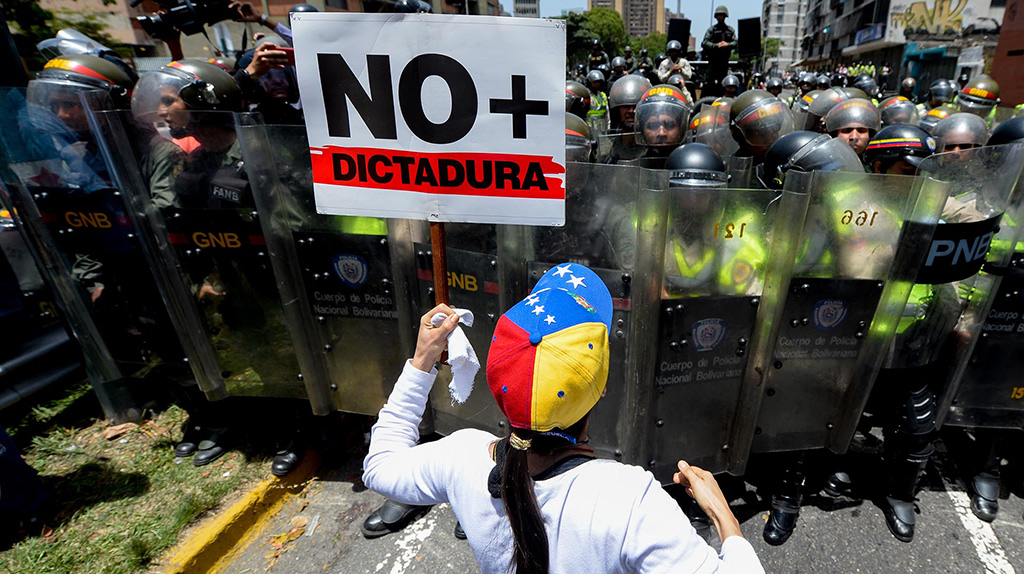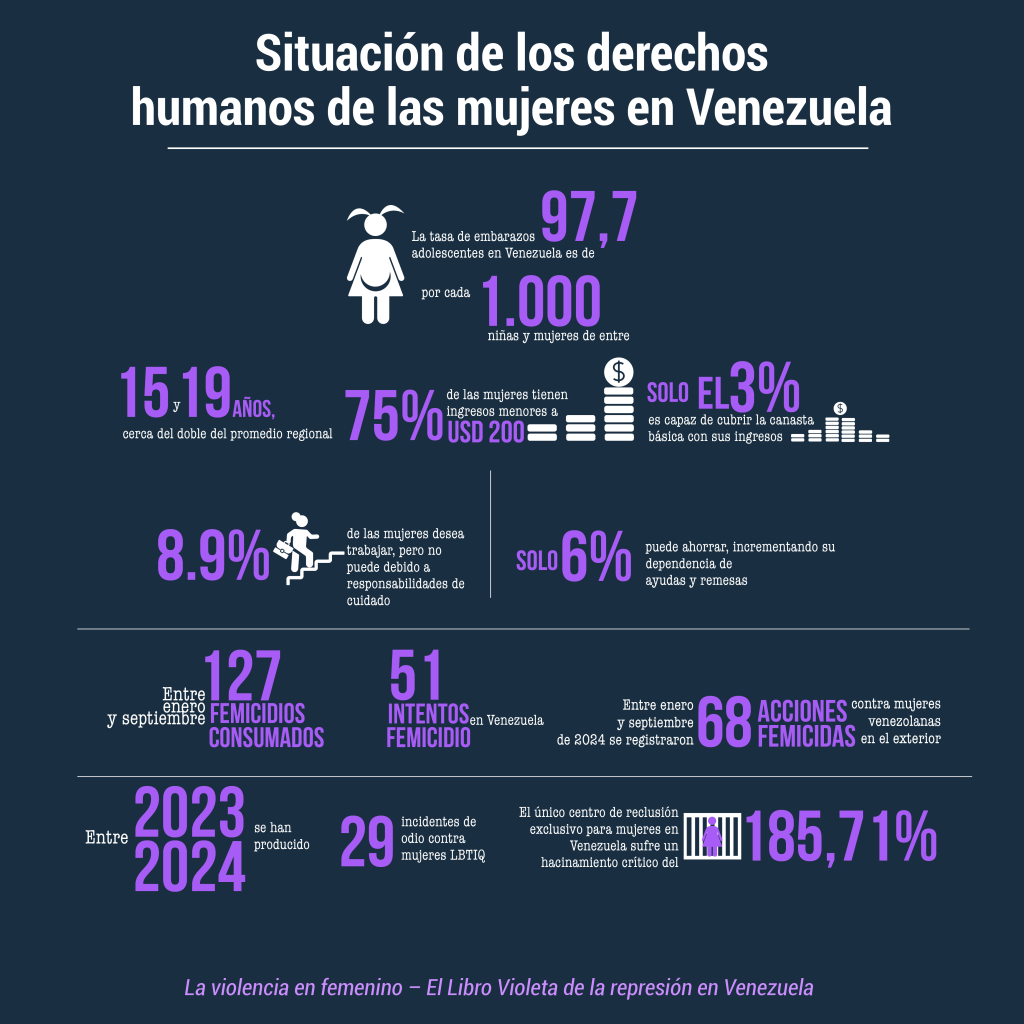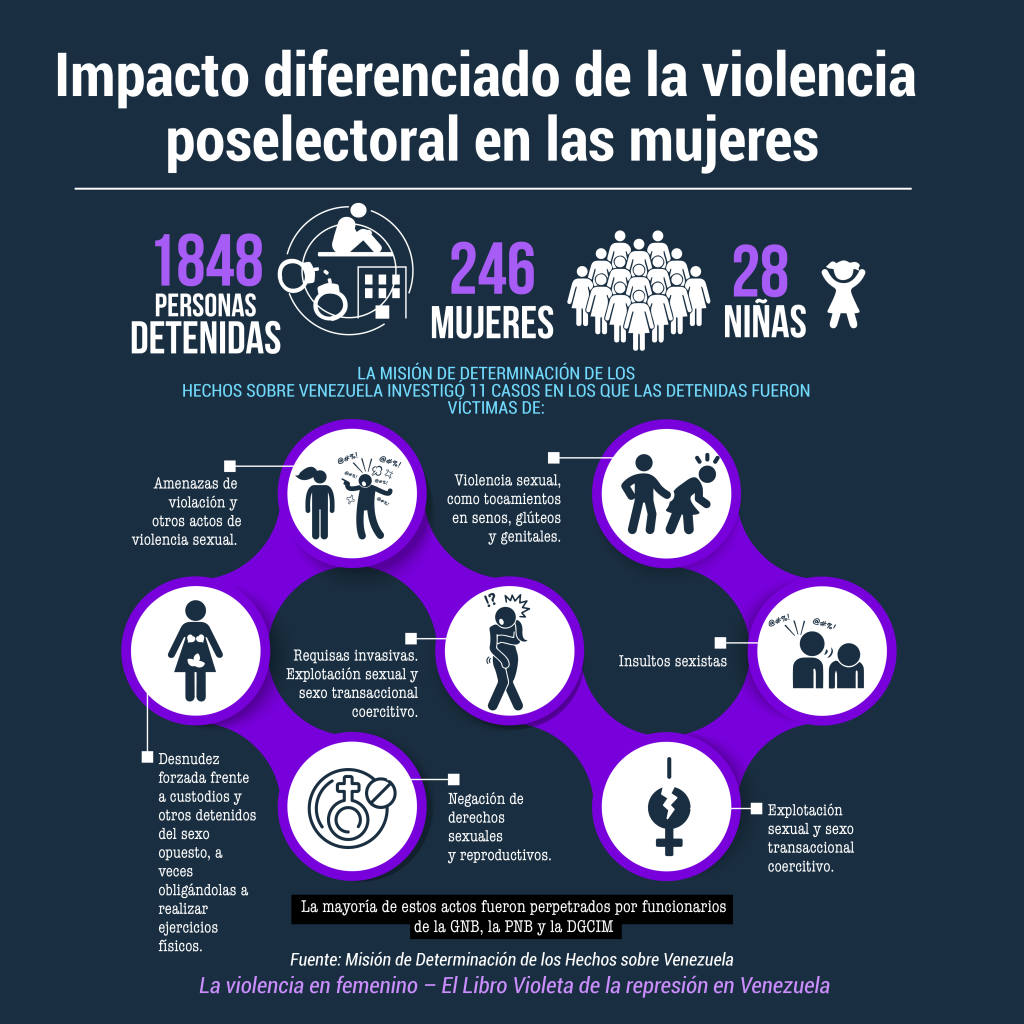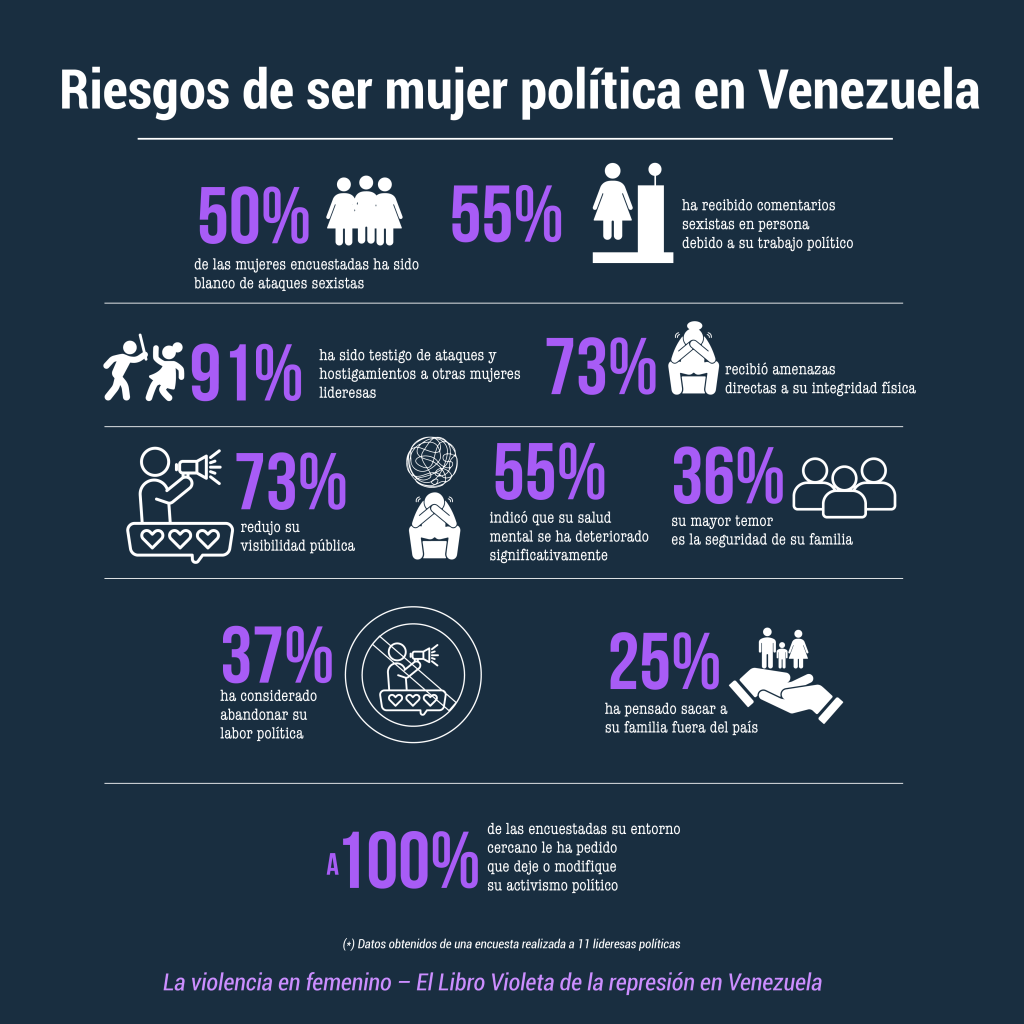The purple book: report shows that women are direct and indirect victims of repression in Venezuela

A new report, this time with a gender perspective, explains how Women are direct and indirect victims of repression in Venezuela. In its analysis, the purple book refers to the case of the mothers of political prisoners, condemned to provide accompaniment in dramatic conditions and often to the detriment of the rest of the family group.
The report “Violence in women. The violet book of repression in Venezuela”, was prepared by feminist organizations from the group Human Rights Venezuela in Movement. Highlights the acts of violence, repression, closure of civic space and persecution, perpetrated against the Venezuelan population between July 29 and mid-November 2024.
The participating organizations are aware of the context of growing repression in Venezuela. This is the reason why the report does not attribute or identify any data, except for those extracted from reports of international organizations.
The Violet Book
Mothers of political prisoners, women detained in the context of post-election protests, activists, among others, are victims, although they are often not recognized as such. Below is the report:
How are the human rights of women in Venezuela?
According to HumVenezuela, by 2024, almost 13% of children and adolescents do not regularly attend school. The situation especially affects girls and adolescents, who are more likely to abandon their studies to take on care tasks, exposing themselves to risks such as early pregnancy, whose rate in Venezuela almost doubles the regional average, standing at 97.7 per 1,000 girls. and women between 15 and 19 years of age.
The 2023 National Living Conditions Survey (Encovi) reflects thate female economic participation is low (37.3%). While Equilibrium CenDe studies highlight that 75% of women have incomes of less than $200. Only 3% can cover the basic basket.
Between January and September 2024, an organization documented 127 completed femicides and 51 frustrated ones. In the same period, 68 femicidal actions against Venezuelan women abroad were recorded, a reflection of the exacerbated vulnerability to which Venezuelan women are exposed in the context of human mobility.
LBTIQ+ women continue to face institutionalized discrimination, social exclusion and extreme vulnerability. Acts of violence and hate speech persist, with 29 incidents documented between 2023 and 2024.
Women as direct and indirect victims of repression
Another group in a particularly vulnerable situation are women prisoners. The National Institute of Women’s Guidance (INOF), the only center exclusively for women, suffers from overcrowding of 185.71%. The political prisoners held there suffer additional punishments, including isolation and restrictions on visits and medical care, evidencing particular discrimination.
In 2024, administrative disqualifications, a practice condemned by international mechanisms, have their most notable case in María Corina Machado. The winner of the Unitary Platform primaries was not allowed to register as a candidate. The candidacy of Corina Yoris, designated by Machado to represent her, was not accepted by the registration system. This resulted in a complete absence of female candidates on the electoral card.
Arrests in post-election protests
The increase in gender-based political violence has become evident after the elections. Of the 1,848 people reported detained in the context of the post-election protests, at least 246 are women, including 28 girls.
Detained women and girls are especially vulnerable to being victims of gender violence, especially sexual violence, reports the Violet Book. In this regard, the Fact Finding Mission investigated 11 cases, which included threats of rape and other acts of sexual violence. Most of which were perpetrated by officials of the GNB, the PNB and the Dgcim.
Between November 7 and 8, 2024, relatives of the political prisoners held a vigil outside the Tocorón prison. “I love you son, I will never abandon you” one of the mothers is heard saying. Despite the risk that the search for justice poses for these women, they continue to be protagonists of enforcement actions, exercising, even in the worst conditions and to the detriment of other people in their care and themselves, the role of caregivers. Despite this sacrifice, they are not recognized as victims, and their suffering remains invisible.
Civic space and the differentiated challenges for women’s organizations
Legal regulations such as the Law on Supervision, Regularization, Performance and Financing of Non-Governmental Organizations and Non-Profit Social Organizations intensify the closure of civic space, limiting the ability of women’s organizations to expand their impact.
Leaders interviewed say that their safety and that of their families is threatened and they face the dilemma of sheltering in place or continuing with their work.. His mental health has been affected. “I started taking anxiolytics – there is no virtue in suffering,” said one of them.
These women are exposed to smear campaigns, attacks on social networks and threats. For this reason, they have reduced in-person activities and constantly evaluate strategies to minimize risks, even adopting self-censorship as a protection measure.
They also face difficulties in guaranteeing the sustainability of their initiatives, since local financing options are almost non-existent and international financing options are limited. Despite this panorama, they continue to fight to keep organizations active. “In total, about 200 women would be impacted if we stop working – how do we leave them alone? “We can’t,” said one of the interviewees.
Female political leaders are more prone to attacks
That they stop or modify their political activism is a recurring request that those close to them make to female political leaders. A survey conducted with 11 of them showed that 50% of those surveyed have been the target of sexist attacks. While 91% have witnessed attacks and harassment of other women leaders. Reducing its public visibility has been one of the strategies used to minimize risks. Despite these challenges, 55% have strengthened their relationships of trust with other female politicians and 91% are willing to collaborate with other female leaders.
Resilience and resistance of women’s organizations in Venezuela
Women’s organizations and political leaders have been specific targets of repression and are feeling the effects of the closure of civic space on the front lines, which limits their ability to articulate responses. Despite this, they continue to play a key role in safeguarding civic space, building spaces of solidarity in the face of a hostile environment, according to the Violet Book.
Recognition of the central role of women in the fight for justice and human rights is essential to move towards a comprehensive understanding of the Venezuelan crisis. The resilience and resistance of women is a crucial axis for the reconstruction of the social fabric and the search for a more just and inclusive society.
Independent journalism needs the support of its readers to continue and ensure that the uncomfortable news they don’t want you to read remains within your reach. Today, with your support, we will continue working hard for censorship-free journalism!



